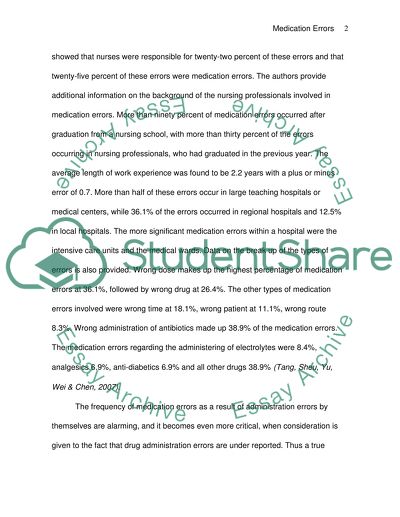Cite this document
(“Medication errors Essay Example | Topics and Well Written Essays - 1250 words”, n.d.)
Retrieved from https://studentshare.org/miscellaneous/1544474-medication-errors
Retrieved from https://studentshare.org/miscellaneous/1544474-medication-errors
(Medication Errors Essay Example | Topics and Well Written Essays - 1250 Words)
https://studentshare.org/miscellaneous/1544474-medication-errors.
https://studentshare.org/miscellaneous/1544474-medication-errors.
“Medication Errors Essay Example | Topics and Well Written Essays - 1250 Words”, n.d. https://studentshare.org/miscellaneous/1544474-medication-errors.


